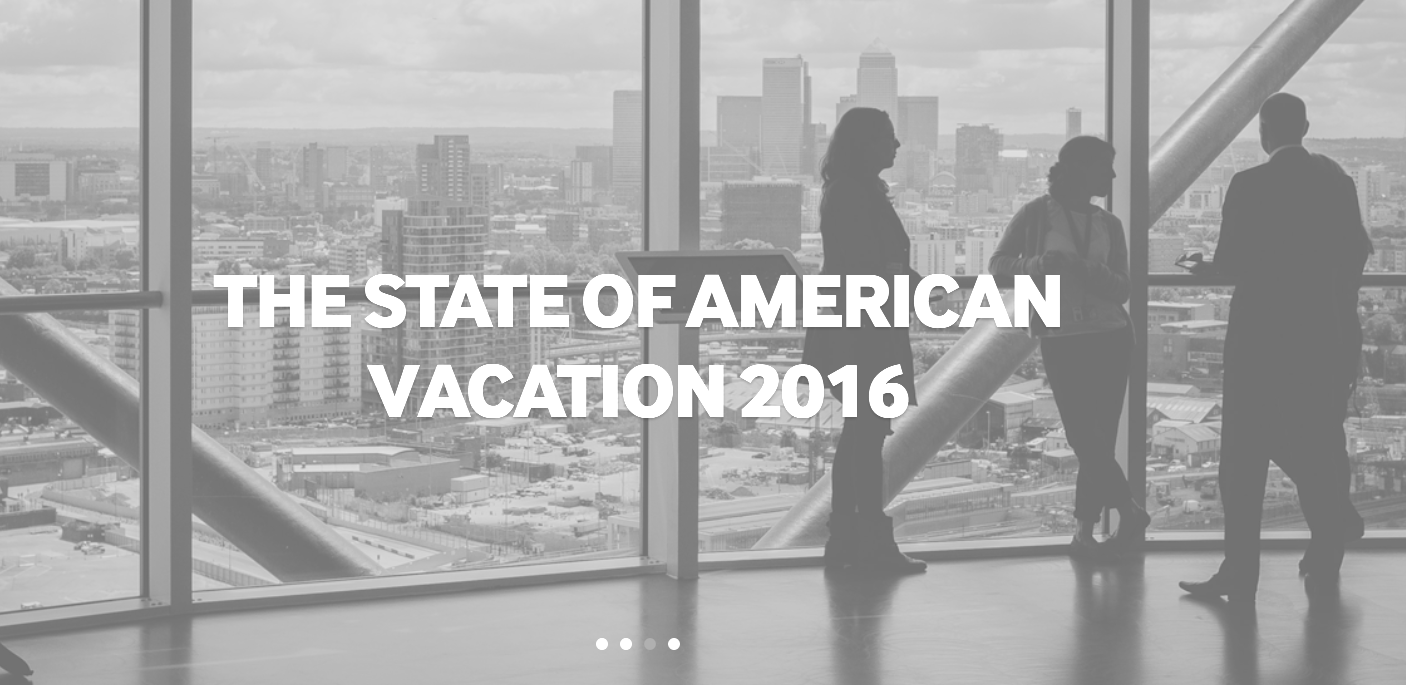Vacations are good for you. They’re psychologically restorative. They broaden your outlook. They promote physical vitality and good health. And, lest we dismiss them as petty indulgences, they increase workplace productivity.
Plus, according to Project: Time Off, taking those unused vacations would provide a $223 billion boost to the economy.
For all the acknowledged benefits of time away from work, during 2015, 55 percent of Americans opted not to use 658 million of their vacation days. That’s a lot of vacation deprivation, that Project: Time Off has made it its mission to rectify.
The Project: Time Off Coalition is helping tell the story of the value of time off. This broad-based group of organizations is committed to changing the thinking and behavior of Americans about their vacation time. Whether days are spent traveling, at the ballpark, or tackling that DIY project, the Project: Time Off Coalition’s support is integral to unlocking America’s vacation opportunity.
The Culprit: Work Martyrs
Project Time Off (PTO) lays the blame for Americans’ reluctance to fully use their company-allowed vacation time at the feet of what it calls work martyrs, workers who “have subscribed to a philosophy that prizes hours worked over true productivity and a belief that not taking a break will reap greater professional success.”
And who are these martyrs? According to PTO’s research, they’re overwhelmingly Millennials: 43 percent, versus just 29 percent of the survey respondents overall. That’s a concern for the travel industry, which supports PTO’s efforts to reverse what could be a continuing trend toward less travel and, as a consequence, less spending on airline tickets, hotels, car rentals, dining, and so on.
Why are Millennials more travel-averse than other age groups? Two key reasons, according to PTO. First, they came of work age during an economic downturn, which led them to view their jobs as highly insecure. Thus the work martyr syndrome. And second, they grew up with the Internet and email, which have blurred the distinction between work and private lives. Why go on vacation if the job will just follow you wherever you go?
As far as solutions go, PTO has its eggs in a single basket: more enlightened managers, who will encourage Millennials and other workers to take the vacations due them. “It will take good managers who are willing to work as change agents in order to reap the business benefits of time off: more engaged employees, an improved team environment, and greater productivity, to name just a few. The alternative is to settle for higher stress levels and worker unhappiness, a damaging combination that will hinder any company’s success.”
Easier said than done.
Reader Reality Check
How much of your annual vacation time do you take?
After 20 years working in the travel industry, and almost that long writing about it, Tim Winship knows a thing or two about travel. Follow him on Twitter @twinship.
This article first appeared on SmarterTravel.com, where Tim is Editor-at-Large.


Tim, very much agree with the sentiments in this article. i’m 28, and many of my friends view their positions as highly insecure for the first 2 or 3 years with a given company, even if they’ve never received negative feedback on job performance. i think many young professionals take the position that they’re not going on vacations that require more than 1 or 2 days off from work unless a supervisor or manager gives an unsolicited blessing of some kind, such as “hey, i’ve noticed you haven’t been on vacation in a long time! you should go!”. we all know too many folks who have gone underemployed for long stretches, and we’re phobic of the possibility.